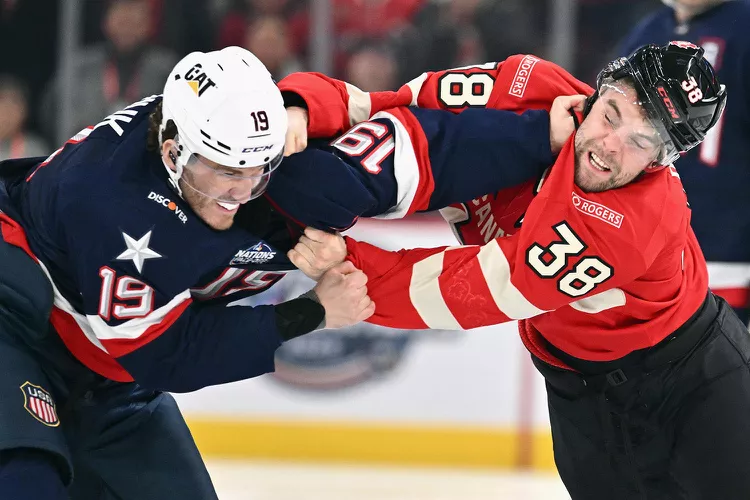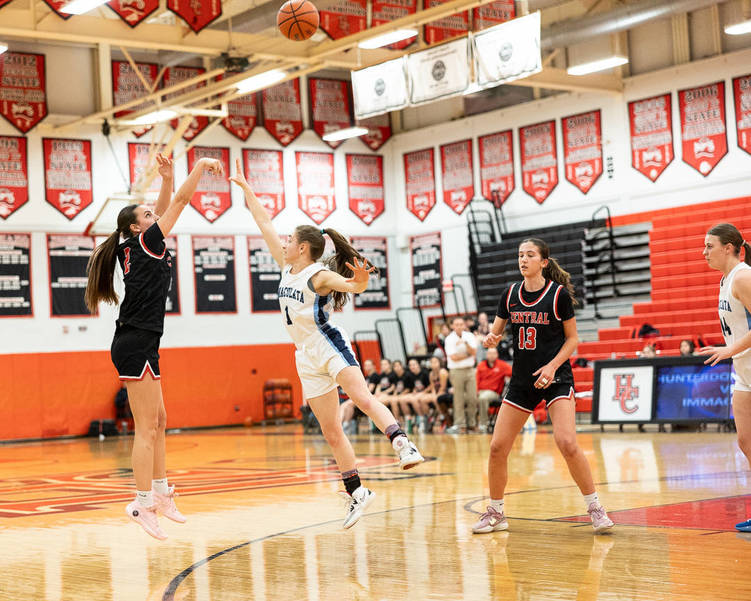If you were among the millions that watched the highest-rated professional hockey game in decades (Canada vs. USA 4-nations championship game), you would know there was some serious tension. It wasn’t just the usual rivalry between the two countries regarding hockey (or sports in general), but also because of the growing political friction between them.
For Canadians, hockey isn’t just a sport, it’s part of their identity. It’s a way to express their national pride. Winning is a big deal, and that competitive spirit is amplified when they play against the U.S. On the flip side, while the U.S. might not be as obsessed with hockey as Canada, with their growing interest (as illustrated by a whopping 99% attendance at many NHL arenas throughout the country), there is still a strong desire to win. The rivalry is intense, and the stakes are high.
Interest in this last championship game has never been higher, for it was the best-on-best international competition. With the anticipation leading up to this final, the game itself was anything but boring, with Canadian superstar Connor McDavid scoring the game-winning goal just 8:18 into overtime. McDavid, named player of the game, had an assist from Mitch Marner and shot the puck into the top corner past U.S. goalie Connor Hellebuyck, securing the win for Canada.
When Nathan MacKinnon gave Canada a 1-0 lead early in the first period, the U.S. responded with goals from Brady Tkachuk and Jake Sanderson to make a 2-1 lead. Canada came back, though, with Sam Bennett tying the game at 2-2 with an ultra-precise shot over goalie Hellebuyck’s shoulder. The third period was still intense with few shots made by the U.S but blocked by Canada’s defense led by goalie Jordan Binnington’s 31 saves (including six in overtime), keeping the U.S. from getting ahead. Finally, McDavid ended the game with an overtime goal.
This wasn’t just a classic sports rivalry between two teams; the political tension between the U.S. and Canada has been churning, especially after President Trump imposed 25% tariffs on Canadian auto imports. Canadian Prime Minister Mark Carney called it a “direct attack” on Canada, highlighting the negative impact on both American consumers and workers. With auto exports being Canada’s second-largest trade product, these tariffs put thousands of jobs at risk, turning the game into more than just rivalry, but a symbol of national pride and the values each country stands for.
The political drama didn’t go unnoticed, especially when U.S. General Manager Bill Guerin expressed how having President Trump attend the championship game could heighten the tension. This, along with Trump’s controversial remarks about potentially making Canada the ‘51st U.S. state’ and the ongoing threats of tariffs, made tensions high. Fans in Montreal even booed The Star-Spangled Banner before a previous game. Guerin acknowledged that these political tensions added extra intensity to the matchups, including the preliminary game, which featured three fights in just the first nine seconds.
The political undertones were even more apparent when U.S. fans booed “O Canada” before the game. In response, Canadian singer Chantal Kreviazuk changed the lyrics to her version of the anthem, sending a bold message: “This rivalry is about more than just hockey.” Trump’s earlier social media post, where he said he’d be watching and hoping for a U.S. victory, added more fuel to the fire. After Canada’s win, former Prime Minister Justin Trudeau posted, “You can’t take our country—and you can’t take our game,” reflecting the pride and defiance many Canadians felt at that moment.






